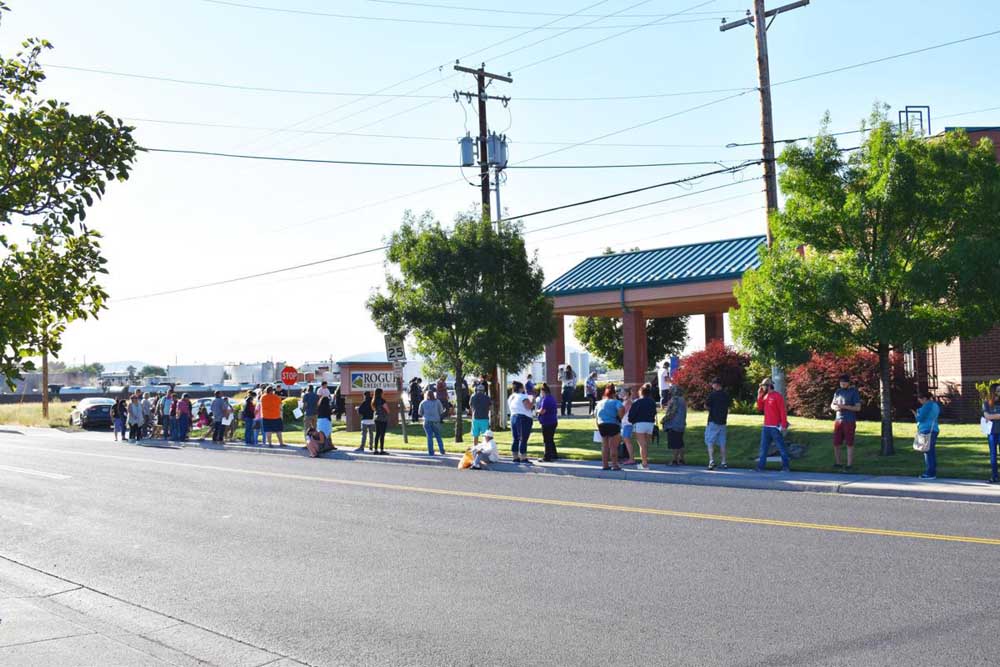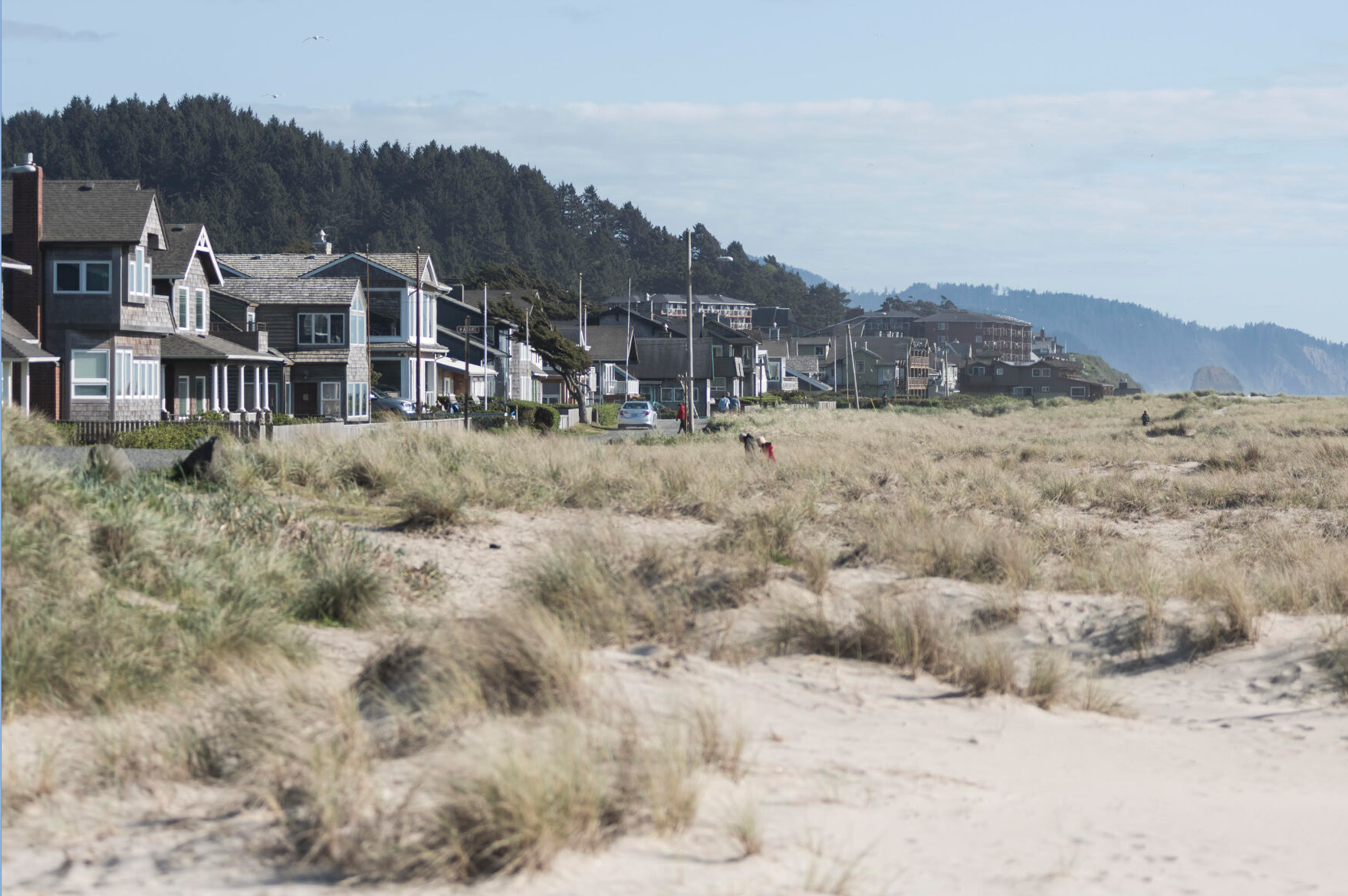Guest Column: Some good news for Oregonians
Published 12:30 am Tuesday, August 25, 2020

- People wait for their checks outside a credit union in Klamath Falls.
Good news for Oregonians!
Trending
Well, for some Oregonians.
Six weeks ago, Oregon’s legislative leaders announced their audacious idea: Give $500 to any Oregonian marooned in the abyss of state unemployment benefits.
Here is the backstory of the daring program that launched Wednesday morning — and which credit unions announced ahead of legislators — and tapped out on Friday morning.
Trending
Last month, the well-documented backlog at the Oregon Employment Department was moving so slowly that state Senate President Peter Courtney, D-Salem, and House Speaker Tina Kotek, D-Portland, devised a temporary workaround. Go outside the normal unemployment process and give money directly to jobless Oregonians.
On July 9, they announced their plan in a press release. “I knew that if we issued a press release,” Courtney told me Wednesday, “we were boxed in. We had to produce.”
Anna Braun, Courtney’s chief of staff, had suggested such payments months ago. Separately, Kotek and her staff also were mulling such a concept.
Courtney wanted one-time checks as large as $1,500. Kotek favored $500, so as to spread the money among more Oregonians. They agreed on $500, estimating that 70,000 Oregonians could be served through $35 million in federal coronavirus relief funds.
The financial industry leaped aboard, ready to help. The state Department of Administrative Services promised its commitment but said launching the program would take at least six weeks, whereas Kotek wanted action in a matter of days.
On July 14, Kotek and Courtney took their concept to the Legislative Emergency Board, which has an uneasy relationship with some lawmakers and Gov. Kate Brown.
In the eyes of many, the E-Board has been acting like a mini-Legislature in its response to the coronavirus pandemic. Courtney said the governor thinks the board has encroached on her powers. Some legislators, especially Republicans, contend the E-Board makes too many decisions that rightly should have been left to the full Legislature and which could have been handled during the two special sessions this summer.
Nevertheless, the $500 proposal won unanimous, bipartisan support from E-Board members after less than 25 minutes of discussion.
“Even though $500 will not solve all problems, our ability to move some of these dollars quickly out to individuals who need the help, I think, is of paramount importance,” Kotek told her colleagues. “However many meetings it takes in the next five days to implement this, we will need to do.”
Implementation took far longer. The initial details were vague, needing to be worked out. Kotek and Courtney wanted a program that was statewide, effective and efficient, so people applying for the $500 wouldn’t get the runaround.
“People are out there dying,” Courtney said in July, “and I don’t like to blame the Employment Department. I just like to do something. So we’re trying to do something.”
Sen. Lynn Findley, R-Vale, applauded the proposal during the E-Board discussion but criticized the Legislature for failing to properly oversee the Employment Department.
He acknowledged that the department staff is working hard but said, “They’ve hired 700 people in the last four months and they’re still not doing their job. There is a system problem and a system failure that I believe we need to take action on.”
Like many lawmakers, Rep. Rob Nosse, D-Portland, had a list of roughly 200 constituents who had contacted his office about unresolved benefits claims. He was calling each of them every week to check on their situation and let them know that at least one person in government was listening to them.
While supporting the broad outlines of the proposal, Sen. Betsy Johnson, D-Scappoose, proved prescient at that July meeting.
“I’d vote for this twice. What we have done to Oregonians is despicable,” she said, referring to the Employment Department. “These people have lost hope and they are absolutely frantic and desperate. If we say that we have a finite amount of money and it’s first come, first serve, I don’t know what that’s going to look like in the lobby of banks.”
To help prevent fraud in distributing the $500, Oregonians had to apply in person at one of the more than 150 participating credit union or bank branches around the state.
The in-person approval process was quick; the wait was not. Some locations were first come, first serve. Others required appointments.
The $35 million available was gone in just three days, according to the Oregon Capital Bureau.
Financial institutions will have a final funding allotment cap. Previously scheduled appointments will continue through the end of the month.
Courtney said lawmakers knew from the start that the money wouldn’t be enough to cover all needs, the Oregon Capital Bureau reported, but it was a start.
“We had to take action to get money directly to people as quickly as possible,” he said.









